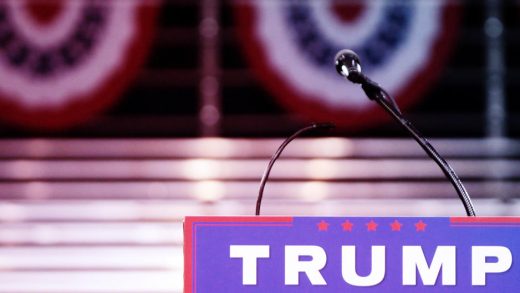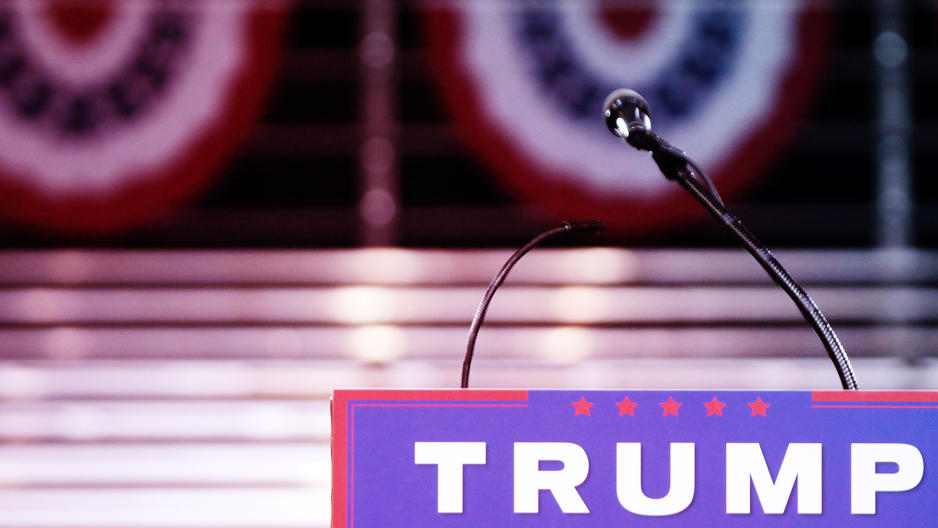Three Ways Donald Trump’s America Won’t Be Good For Startups
If you’re having trouble figuring out what effects Donald Trump’s incoming administration might have on American startups, you’re not alone. The president-elect’s planned policies, or lack thereof, have been delivered stream-of-consciousness-style in tweets, interviews, and offhand remarks, offering a scattershot and often contradictory message from one day to the next. For entrepreneurs and workers in the broader startup community, the uncertainty has left many in a protracted state of post-election anxiety.
But all hope for clarity is not lost. Despite the lack of consistency, there are a few key initiatives that Trump has repeated throughout the campaign, some of which experts believe could negatively impact tech startups—and innovative business in general. Provided Trump is able to follow through on some of his promises, here are three areas that may be especially problematic:
Closed Borders
Jeffrey Gordon, a professor of business law at Columbia University, notes that Trump’s desire to close borders could negatively affect the ability of tech companies and startups to attract overseas talent. “[It would mean] less openness to relaxing visa restrictions on highly skilled foreign workers, so the existing talent will become more expensive and overall industry dynamics will slow,” Gordon tells Fast Company.
Tech companies in particular like to bring in specialized workers on H-1B visas, which allow immigrants to work in the United States. Opponents like Trump accuse tech companies of looking for cheap overseas labor, but many of the big tech companies say they just want to find the hottest global talent.
Whatever the case, what’s becoming apparent is that many of those workers are starting their own companies. Immigrants are heading up fast-growing U.S. businesses in a big way, the National Foundation for American Policy reported earlier this year. According to the report, the United States has 87 startups valued at $1 billion or more, and over half of them—44 startups—were launched by immigrants.
Moreover, immigrants featured prominently in key management or product development teams in more than 70% of the startups cited. These startups, NFAP says, are also creating jobs—760 per company. Reducing the number of H-1B visas, or killing the program altogether, could have a significantly negative impact on the startup economy, essentially stunting the number of businesses that crop up every year.
On the bright side, in March, Trump told Fox News anchor Megyn Kelly that he would be willing to draw down his stance on high-skilled immigration despite a harder-line position stated on his website.
“I’m changing it and I’m softening the position because we have to have talented people in this country,” he said in the interview.
Overseas Manufacturing Restrictions
Hardware startups, too, may face hurdles if Trump attempts to curb outsourced manufacturing. “Tech startups that intend to produce hardware will worry about the impact on Asian supply chains,” writes Gordon via email. “This will also be true for established firms like Apple and thus will affect the Apple-specific startup ecosystem.”
Trump has reportedly said he wants a 20% tax on imports and a 15% tax on outsourcing jobs. In particular, this taxation plan would hit hardware companies like Apple, Google, and Amazon especially hard. Such tax structures may also reduce trade between the U.S. and other countries, causing a slowdown in foreign sales for tech companies.
“Inhibiting the growth of small hardware startups is really ultimately detrimental to the economy and you’re not going to see any increase in manufacturing domestically to offset that,” says Evan Engstrom, executive director at Engine.is, an economic and policy research organization and advocate for startups. Engstrom also points out that startups that have ventured into the realm of 3D printing and are exploring innovative ways to manufacture stateside will not likely be as affected by potential tariffs on overseas manufacturing.
Trump’s overall plan to reduce reliance on foreign manufacturing and his promise to disrupt trade deals may also make it more difficult for U.S. companies to do business in international markets.
“All tech firms will worry about the impact of Trump trade policies on foreign product sales,” says Gordon. “There could also be a negative U.S. ‘brand’ effect, which could negatively affect foreign sales.” In other words, if Trump implements policies that make it cumbersome for companies overseas to make money in the U.S., it could in turn affect U.S. companies’ ability to sell in other countries.
Investors Don’t Like Unpredictability
The cloud of uncertainty around what exact policies Trump will push for as president may cause venture capitalists to be hesitant about investing. “The overall investment climate is likely to be unsettled for some time, which could affect willingness of VCs to invest in startups,” says Gordon.
But that may also just be a continuation on a trend. In the last year or so, venture capitalists have been shelling out fewer dollars overall than they did in 2015, according to CBInsights. Though less money is funneling through to startups, the number of deals is still “healthy” by its standards—meaning there’s still an opportunity for startups to get funding, just not as much as they might have in years prior.
Bleak Future?
On its face, this environment may signify a troubling future for U.S. startups, but a Trump presidency may not be all bad. The president-elect has consistently aligned himself with workers and identified himself as someone who would be good for small businesses. “The JOBS Act has already created a favorable regulatory environment for startups’ finance, so I don’t see changes at the SEC as having much effect,” says Gordon.
Startups contribute heavily to the U.S. economy, especially in terms of job creation.
“To the extent that his platform is based all around unleashing business and allowing a lot of new job creation, he would be well served to implement policies that help startups, because startups are the creator of all new net jobs in this country,” says Engstrom.
For instance, small businesses with fewer than 50 employees were responsible for 37% of net job growth for the last four quarters, according to the Bureau of Labor Statistics. Medium businesses with 49-250 employees or fast-growing startups represented 46% of net job growth over the same period. Trump has made promises to cut down on regulation for businesses and repeal the Affordable Care Act, which requires businesses with more than 50 employees to offer some kind of health care insurance. So there’s evidence he could be supportive of startups more broadly.
“If Trump’s message is going to be pro-business, you really can’t be pro-business without being pro-startup,” says Engstrom. “But there’s always a possibility that if he’s not interested in engaging with the tech community companies, a lot of startups are going to feel the pain of that.”
related video: Post-Election Reactions From The Business World
Fast Company , Read Full Story
(11)














